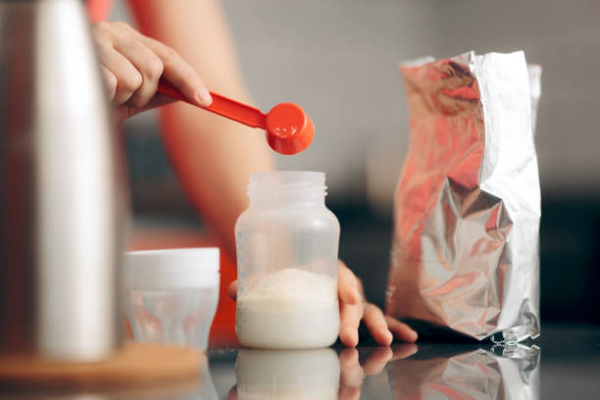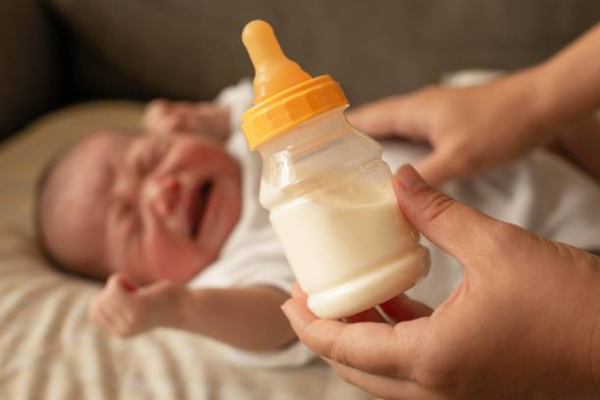- 0share
- Facebook0
- Twitter0
- Pinterest0
- Reddit0
In 2006, an extensive survey comparing bottle-feeding and breastfeeding rates in the UK found that 19% of mothers exclusively bottle-fed their baby for the first six months, compared with just 2% who exclusively breastfed. So it’s no wonder many women are confused about why breastfeeding is best for babies – and what to do if your breasts won’t produce enough milk.

Classic formula milk for infants, consisting of an iron-fortified whey protein concentrate (to replace lost proteins in breastmilk) and lactose, is designed to create a prebiotic effect: it contains both soluble substrates (e.g., lactose), which feed the beneficial bacteria in your gut and insoluble substrate (whey protein) which provides your baby but also feeds bacteria when digested by your baby because of its high osmolarity (similar to breastmilk).
Formula Companies May Require You To Buy Their Formula
You may be needed to buy a formula if:
- You are not breastfeeding. This is because many companies require you to buy formula milk for infants if you are not breastfeeding, even if your baby is exclusively breastfed. The idea behind this requirement is that it makes things easier for them in terms of storage and distribution and lower costs overall. It also gives the company an incentive to ensure they have enough customers who will buy their products regularly to continue making money from them (and therefore continue being profitable).
Breastfed Babies Get More Benefits From The Food They Eat:

Breastfed babies are more likely to be healthy. According to the World Health Organization (WHO), breastfeeding protects against several diseases, including ear infections and allergies. Breastfeeding also lowers your baby’s risk of obesity, asthma, and certain cancers later in life.
Don’t Use Formula When You Are Going Out Of Town So Your Baby’s Regular Diet Will Still Be Available:
Consider using formula if you are going out of town for more than a few days, or you may want to use formula if your baby is away from home when they should eat their regular diet.
Don’t Try To Feed Your Baby A Less-Than-Nutritious Formula If Your Regular Brand Hasn’t Been Used Up Yet:
If you are going out of town, don’t try to feed your baby a less-than-nutritious formula. Your regular brand of breast milk or infant formula will still be available at the store and can be used for providing for your child when you return home.
If you have run out of your regular brand, but not enough time has passed for it to become stale or rancid (within two weeks), then make sure that no other food is available in the house besides water and preferably nothing else that might upset their stomachs such as fresh fruit or vegetables. Then, go ahead with using this alternative source until there is more than enough stored up on hand again.
When You’re Breastfeeding, You Should Know That Formula Is Suitable For Your Baby, And It Can Often Help Make The Transition Easier:
The formula is not a substitute for breast milk and should only be used when necessary (such as when traveling outside your home country).
You might also want to consider using the formula if:
- Your baby has been sick or has had diarrhea.
- Your baby needs feeding in a hospital or medical office setting (such as during surgery).
Related: Essential Self-Care Habits For New Moms
Conclusion:
Adding extra “good” foods such as omega three fatty acids or prebiotics will stimulate increased production of essential nutrients. It may make up for any extra calories consumed elsewhere, e.g., from other foods or supplements. The extra calories will come from glucose in lactose; however, since there are diseases where additional glucose isn’t sufficient (such as diabetes), some doctors recommend limiting/avoiding lactose altogether during these illnesses.


